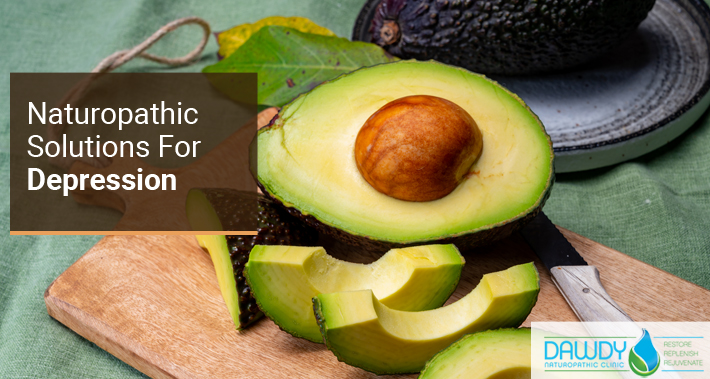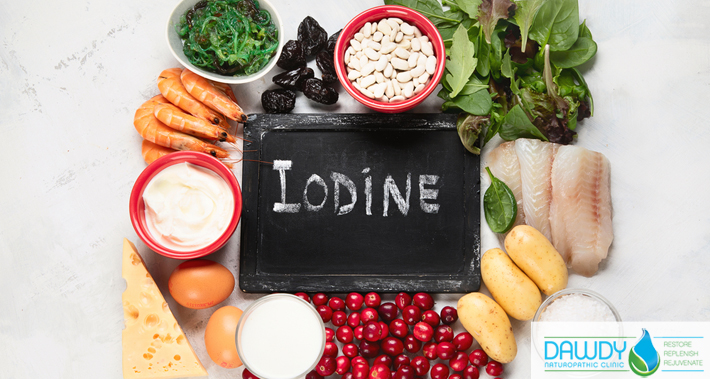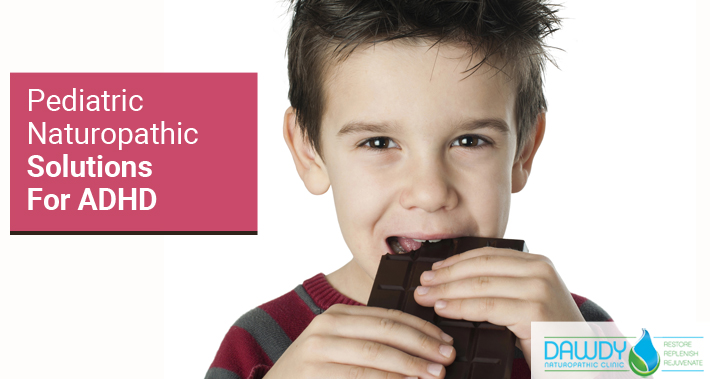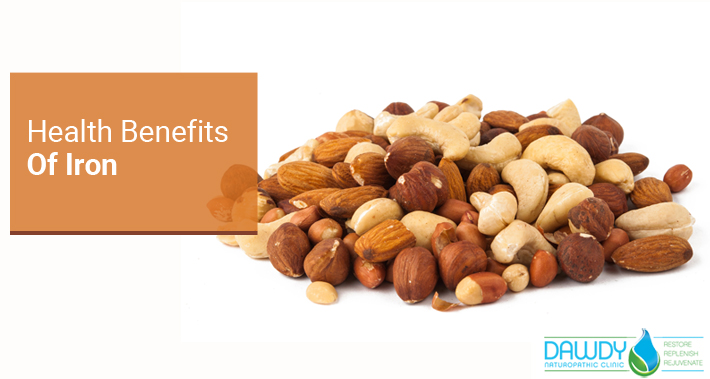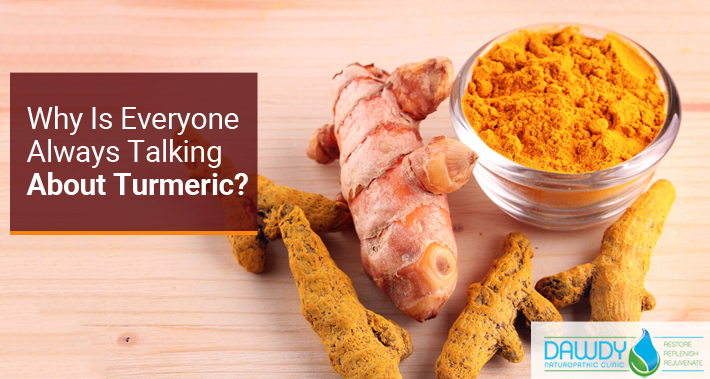A Natural Approach To Depression
Do you ever feel like you should be positive about your life, but you can’t shake your low moods and low energy?
Perhaps you feel like there’s no number of good tidings that could improve how you feel.
If that’s the case, you might be experiencing depression.
In the past, we’ve talked about some naturopathic anxiety solutions.
But we haven’t yet covered depression, and as an Ottawa naturopathic doctor it’s a subject that often comes up.
Depression can feel debilitating and isolating.
Often, you’ll try a lot of solutions with no sign that you’re on the mend.
However, if you’re feeling like this, you’re not alone.
It’s estimated that 5% of adults worldwide experience depression.
If you are experiencing depression, it’s possible that your body is trying to tell you something.
For example, when you are low on certain nutrients and minerals in your body, you might begin to feel depressed.
Boosting your intake of some of these vitamins and minerals can help alleviate your feelings of depression.
Let’s talk more about depression and some of the naturopathic ways to address it.
What Is Depression?
Depression is an imbalance of hormones that causes you to think and feel things in ways that are negative and sometimes painful.
It’s a mood disorder that can make many aspects of your life more challenging than they would normally be.
For example, it can affect everything from how well you sleep to how you handle your daily routine.
Depression isn’t just about feeling sad.
It’s a persistent feeling of hopelessness that affects your health and every day life.
If you have depression, you may find that you no longer experience pleasure from things you used to enjoy.
You might feel like you’re not even able to function in your regular life.
You might also find that depression has begun to affect your overall health.
Maybe you have more trouble doing self care tasks like cooking, showering, or brushing your teeth.
You might experience weight loss or gain, insomnia or chronic fatigue, and lack of energy.
You could feel agitated and restless, or slow, sluggish and mentally foggy.
You may even feel a lack of self worth and have suicidal thoughts.
Symptoms of depression can persist for months or even years.
Depression may sound scary and hopeless, but it’s important to remember that you are not alone.
Let’s take a closer look at some different kinds of depression and how naturopathic solutions can help you.
What Types Of Depression Are There?
There are quite a few different types of depression.
Some of these are caused by circumstances in your life that leave you feeling hopeless.
Other types of depression are caused by a chemical or hormonal imbalance.
Though not an exhaustive list, some of the most common types of depression are:
Major Depression
One of the most common types of depression is major depression.
Major depression is depression that you experience almost all the time.
If you find that you’re depressed most days of the week and most of the time during those days, you may be experiencing major depression.
Persistent Depressive Disorder
Persistent depressive disorder is depression that lasts two years or longer.
If you lack energy, have a feeling of hopelessness, and have trouble making decisions, you could have persistent depressive disorder.
Bipolar Disorder
Bipolar disorder used to be referred to as “manic depression” and is characterized by mood swings.
Some days you’ll feel very high, and other days sink into low depressions.
In a low phase, your symptoms will be that of major depression and can feel debilitating.
Seasonal Affective Disorder
Seasonal affective disorder happens during the times of the year where you’re just not getting enough sunlight.
This usually means that you experience depression in the winter months.
However, it often goes away in the spring or summer when the sun is back out for longer days.
Peripartum (Postpartum) Depression
Some people experience a severe depression after childbirth.
This usually happens in the weeks and months immediately following giving birth.
Approximately 10-20% of new mothers experience peripartum depression.
Partners of the person who has given birth often also experience peripartum depression at a similar rate.
This depression is situational and you may recover eventually on your own.
However, you may also want tools to help you deal with the huge life change of having a child compounded with low mood.
RELATED: Naturopathic Care For New And Expectant Parents
Nutrient Deficiencies Linked With Depression
If you have a nutrient deficiency, your body will have more trouble regulating itself.
That includes your moods, so your mental health can be significantly impacted when you’re lacking certain nutrients in your diet.
Your body will give signs that you could have a deficiency, but it can be hard to know how to listen to it.
Next, we’ll talk about some of the nutrients you can monitor.
We’ll also familiarize you with the symptoms you may experience if it’s a deficiency that is linked to your mental health.
All the nutrients we will discuss are ones that you can easily incorporate into your diet, even if you’re trying to eat well on a budget.
1. B Complex Vitamins
In one study, more than a quarter of severely depressed older women had a vitamin B12 deficiency.
B vitamins have a lot of health benefits, giving you healthy nails and skin.
Of course, they also have a big impact on your mental health.
If you’re looking for sources of B vitamins, you can increase your consumption of fish, bananas, greens, and poultry.
2. Magnesium
Magnesium may counteract stress and enable your body to relax.
Despite its importance, it’s one of the most common mineral deficiencies in the world.
Magnesium helps you relax by binding to GABA receptors in your brain.
GABA, or gamma aminobutyric acid, is a neurotransmitter that plays an important role in relaxation.
If you want to up your intake of magnesium, consider avocados, seaweed, legumes, and whole grains.
3. Zinc
There are hundreds of enzymes in your body that use zinc to help your body function.
This makes it a very important mineral to monitor.
Zinc can help boost your emotional well being and response to stress.
It also helps to regulate your immune system and digestive system.
Zinc may even help reduce your body’s response to food allergies, which are also linked to worsening moods and depression.
You can find zinc in a lot of delicious food, like dark chocolate and oysters.
With food like that, you definitely won’t be struggling with options to incorporate zinc into your diet.
4. Vitamin D
You’ll notice a vitamin D deficiency the most in the winter months when sunshine is scarce.
Earlier, we talked about seasonal affective disorder and how that lack of light can make you feel depressed.
A lack of vitamin D could be responsible for this.
That’s because one of the main ways your body gets vitamin D is by absorbing it through sunlight.
If you’re looking for ways to consume vitamin D, you can try salmon, egg yolks, cheese, and cod.
5. Iron
Iron deficiency is very common, especially if you menstruate.
Being deficient in iron is one of the most common forms of anemia, which means you have an insufficient number of red blood cells.
If you’re iron deficient you may have brain fog, feel irritable, and be generally lethargic.
You’ll notice that these symptoms are very similar to the symptoms you might experience from depression.
If your iron levels are low enough, you may even experience anxiety severe enough that you have panic attacks.
To increase your iron intake, animal proteins are always a good source.
If you’re vegetarian or vegan, you can get iron into your diet through shellfish, nuts like cashews, and blackstrap molasses.
6. Omega 3 Fatty Acids
There are a lot of health benefits of Omega 3 fatty acids.
These minerals reduce inflammation in your body and assist in the functioning of your brain cells.
They also prevent trans fats from entering your brain.
Trans fats are fats that can cause inflammation and other health issues.
Fish, flaxseed oil, walnuts, and egg yolks are all powerful sources of omega 3 fatty acids that you can add to your diet.
7. Iodine
Did you know that your thyroid cells are the only cells in your body that can absorb iodine?
Your thyroid is important for many of your body’s regulatory systems.
If you’re low on iodine, many of these regulatory systems can slow down.
This can trigger thyroid disorders like hypothyroidism.
One of the symptoms of this is depression.
You can also get iodine in iodized salt, but that can come with its own issues.
Egg yolks, saltwater fish, and seaweed are all great natural sources of iodine.
8. Selenium
Selenium is a very important antioxidant for your body.
It helps to convert inactive thyroid hormone to active thyroid hormone.
Without enough selenium in your diet, your thyroid may slow down your regulatory systems.
Just like with low iodine, this can cause symptoms of depression.
Sunflower seeds, whole grains, fruit, and Brazil nuts are all things you can add to your diet for a natural source of selenium.
Book Your Appointment With Dawdy Naturopathic Today
If you’re experiencing depression and need help, Dawdy Naturopathic is here for you.
We’ll be able to work with you to understand your depression and what nutrients may be contributing to your experience.
We’re here to help you find alternative solutions for your depression.
Don’t wait, book your appointment with me, Dr. Kimberly Dawdy, ND, today.
Yours in Health,
Dr. Kimberly Dawdy, ND
Dawdy Naturopathic Clinic
6899 Sunset Blvd,
Greely, ON K4P 1C5
-https://g.page/dawdynaturopathicclinic
Dawdy Naturopathic Clinic offers a variety of naturopathic health solutions for individuals and families in Ottawa and the surrounding area.

